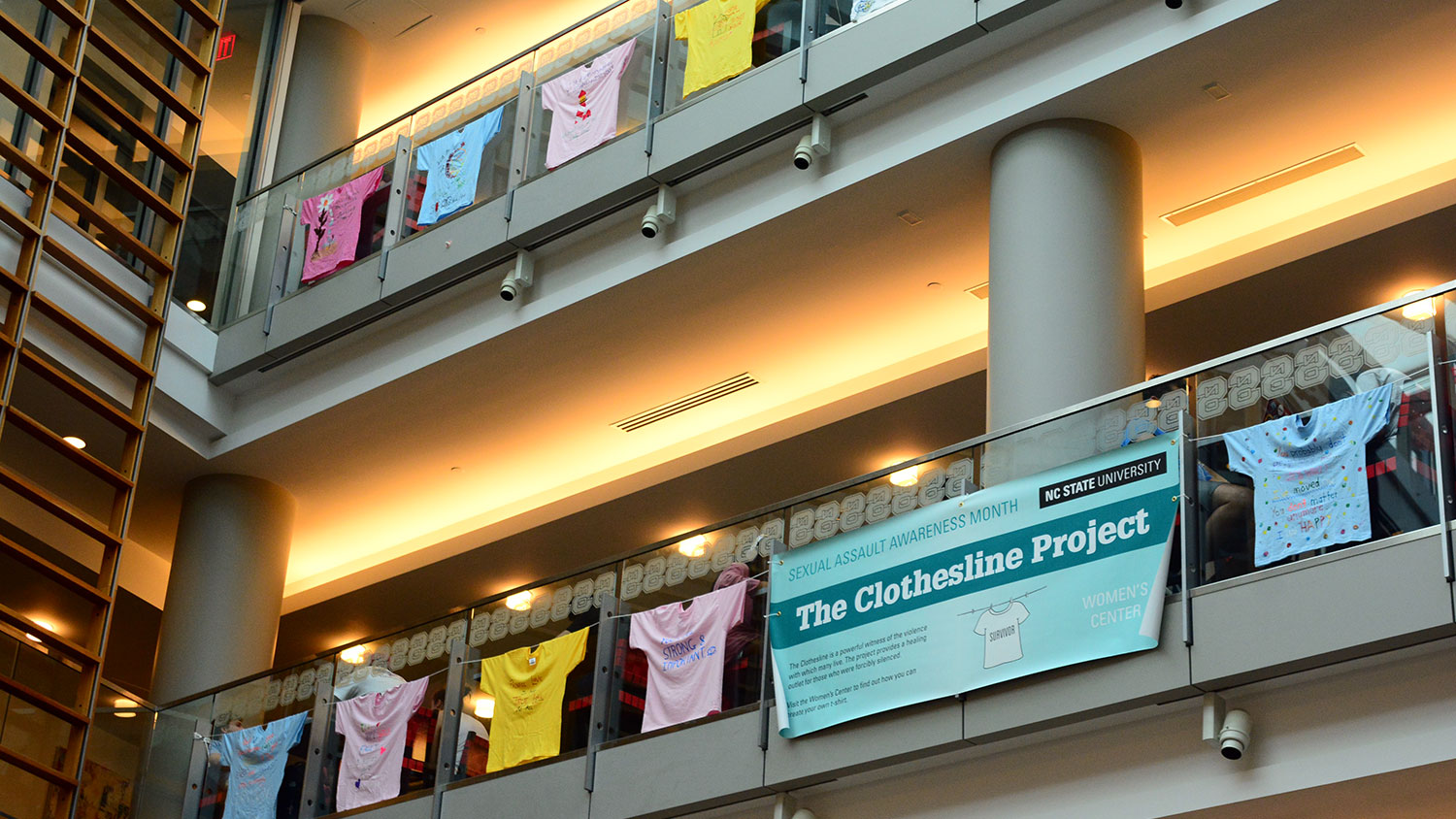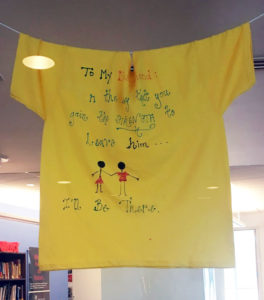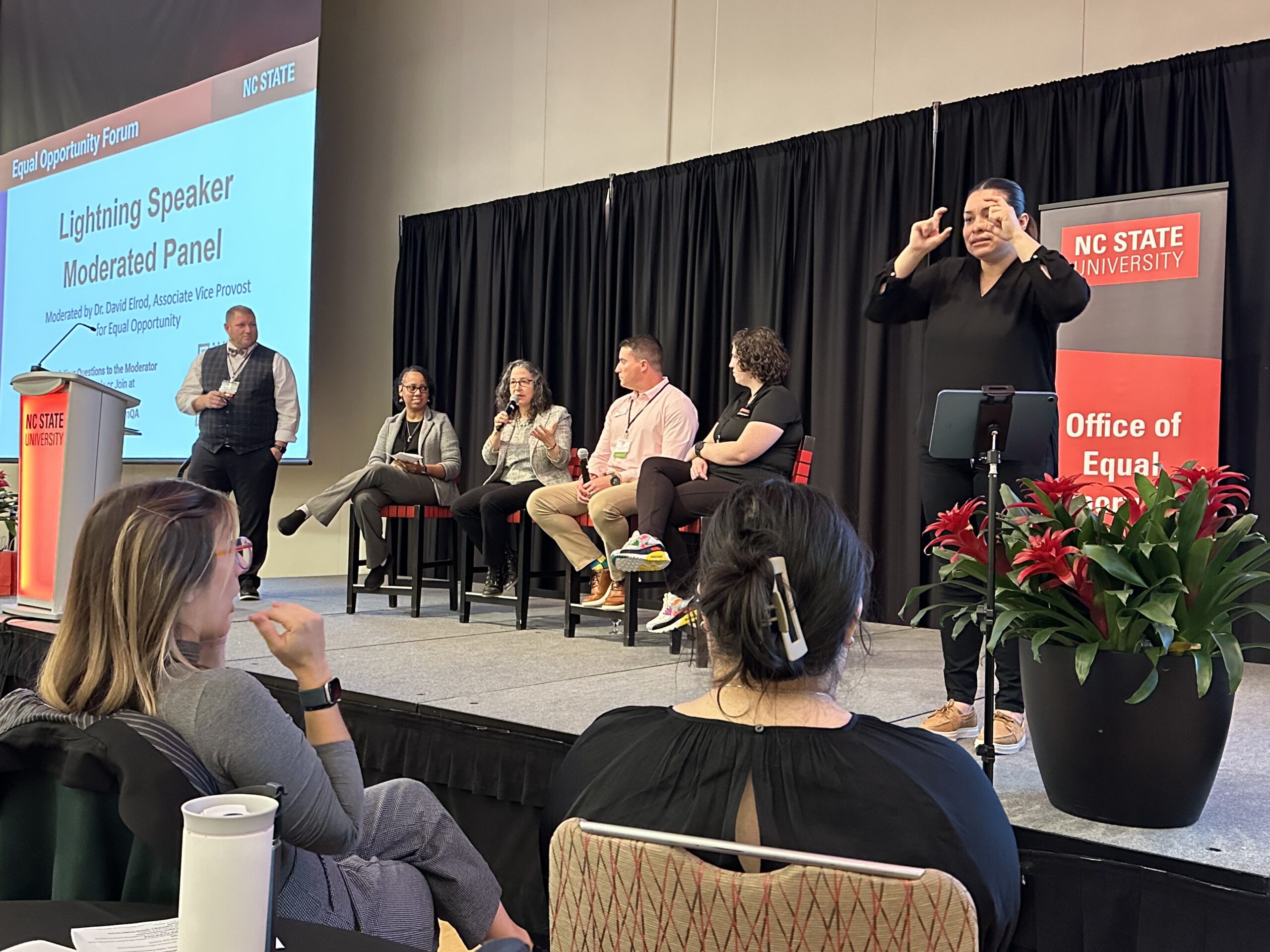Clothesline Project Helps Heal Survivors of Interpersonal Violence through Art

During Sexual Assault Awareness Month, the emotionally moving Clothesline Project raises awareness about sexual violence.
Each of NC State’s Campus Community Centers has dedicated space for the project, which features the work of survivors of interpersonal violence who share their experience through art. Students, faculty and staff survivors and/or family and friends of survivors may participate in the completely optional design of a t-shirt for the project in the Women’s Center. Shirts and materials are provided.
Each t-shirt physically represents support, strength, grief, anger, forgiveness, healing, triumph and much more. Some of the shirts are currently visible hanging on clotheslines as you walk into the lobby of Talley Student Union. In addition to the Women’s Center, the t-shirts hang in Multicultural Student Affairs, the GLBT Center and the African American Cultural Center in Witherspoon Student Center, with about 50 shirts on display among these locations.
 Shirt Colors and Their Meanings
Shirt Colors and Their Meanings
Each t-shirt color has a different meaning:
- Pink shirts represent survivors of adult sexual assault (over age 12).
- Yellow shirts represent survivors of relationship violence.
- Blue shirts represent survivors of childhood sexual abuse and incest (under 12).
- White shirts remember those lost to sexual or relationship violence.
- Purple shirts represent those who experienced violence as a result of their sexual orientation and/or gender identity.
- Gray shirts represent survivors of stalking.
The Women’s Center also provides a list of daily affirmations to help survivors, affirming survivors’ safety, voice and worthiness.
Sara Forcella of the Women’s Center says the process of creating a shirt is sometimes quiet and individual. The Women’s Center staff offers their offices for those who want a private space. Last year, people came to decorate the shirts in groups.
The Clothesline Project originated in 1990 in Hyannis, Massachusetts. It serves as a reminder of the statistics surrounding violence in our communities. The issue is intersectional, which means that it affects people of all different social categorizations such as races, genders, classes and sexual orientations.
What Should I Do if I or a Friend Has Experienced Interpersonal Violence?
Forcella says the most important thing is to listen, support and know about the resources. Campus resources such as the Women’s Center and the Counseling Center provide a safe place for students to seek help.
“Give survivors the power to choose what their healing process is,” says Forcella. Not everyone’s process is the same, and it’s important to respect that when supporting someone who has experienced violence.
You can find and support the Clothesline Project in the Campus Community Centers: the Women’s Center, GLBT Center, Multicultural Student Affairs and the African American Cultural Center. The t-shirts will be displayed through the end of April. Please take note of the signs at each center that indicate whether or not photos can be taken.
- For more information about this year’s Sexual Assault Awareness Month events and how you can take part, please see the SAAM calendar.
Austin Butler is a communications intern in the Office for Institutional Equity and Diversity. She is a senior majoring in science, technology and society.
- Categories:


